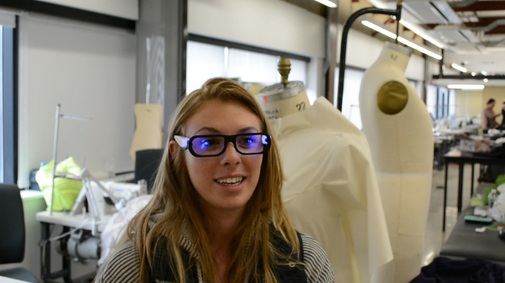|
You've no doubt seen a lot a ads about the Next Great Technology, which would be Smartwatches. As I've written here and in my tech columns, I remain very skeptical about them for the time being. Among two of many reasons, they require also owning a mobile phone, and duplicate what a mobile phone does, but not as well. When that dynamic can be changed, perhaps Smartwatches have a chance. Importantly, they are the centerpiece of an entire new field of technology, called "wearable" (of which the most prevalent are perhaps wrist devices for measuring your health during exercise -- and the big push for Google Glasses). And they haven't kicked in yet either -- not for the same reason, but for a similar one. And last week there was an article about a group of tech experts who feel largely the same. What makes this group different, is that it wasn't a bunch of luddite naysayers -- it was attendees and speakers at the Wearable Technologies Convention. As this sub-headline here of an article on CNET notes, "Revealed at the Wearable Technologies Conference in San Francisco: the 'dirty little secret' of activity trackers and smartwatches is that they're still not worth it." One of the most damning quotes heard at the conference was, "I wore a [Nike] FuelBand for the requisite three or four months and then I abandoned it." The thing is, that wasn't something overheard in a lobby -- it was sat by Kip Fyfe, CEO of the wearable company 4iii Innovations, who was speaking at the time on a panel. One issue is that most companies seem to think that "wearable technology" only means on the wrist, though that isn't the reality, and some products have had success thinking that way, even they too drew pointed comments about the hurdles faced. "The No. 1 shipped wearable device in 2013 was the heart rate monitor chest strap" -- which hasn't changed its form factor in almost 40 years -- "How about that for a technological revolution for you?" This wasn't from a snarky reporter, but industry leader Liz Dickinson, president and CEO of Global Mio, which sells devices to Adidas. She was on a panel and went on more bluntly, asking. "Why on Earth would 12 million people buy these devices last year?" After all, as the article explains her point, the device is "perhaps the most uncomfortable consumer wearable device you can buy today" -- but no other product provides enough value. But the most spot-on comments about what it will take to actually make "wearables" the Next Big comes again from Kip Fyfe. He said: "You have to find something or some things that people can't live without. The reason people like these devices in our hands," he said, holding up a smartphone, "is because people cannot live without them." How "can't live without" are we talking about? A recent study by Bank of America and USA Today show that not only could half of Americans not go without their Smartphone...but more to the point, a third of them would go back home if they realized they'd left without it, One of the big issues that help push a technology into the "can't live without" lane is the "cool factor." Being the latest to adopt something doesn't make you a geek, but cutting-edge and hip. How many out there reading this think that prototype of "light therapy" glasses make this attractive young woman -- or any mortal -- look cool? Yes, I know. Picking one product. And a prototype at that isn't fair for judging an entire field. Nor is it intended to. It's meant to point to the hurdle that all such products far.
Though "can't live without" is the hurdle facing all wearable technology, it's a problem felt most immediately by Smartwatches which have been running commercials about a product that's here now and getting a major push how cool they are, and the wave of the future, here today. They may well be the wave of the future. Google Glasses may, as well. It's a field that does open itself to huge potential. But right now, Smartwatches in particular -- and most current wearable technology -- are just niche gadgets, which do nothing more than something you already have, just not as well. They may find big niches, but that's vastly different than the Next Big Thing. And when the leaders of that industry are tell themselves that -- not just yammerers like here -- you can take a leap of faith that there's some truth to it.
0 Comments
Leave a Reply. |
AuthorRobert J. Elisberg is a political commentator, screenwriter, novelist, tech writer and also some other things that I just tend to keep forgetting. Feedspot Badge of Honor
Archives
June 2024
Categories
All
|
|
© Copyright Robert J. Elisberg 2024
|







 RSS Feed
RSS Feed